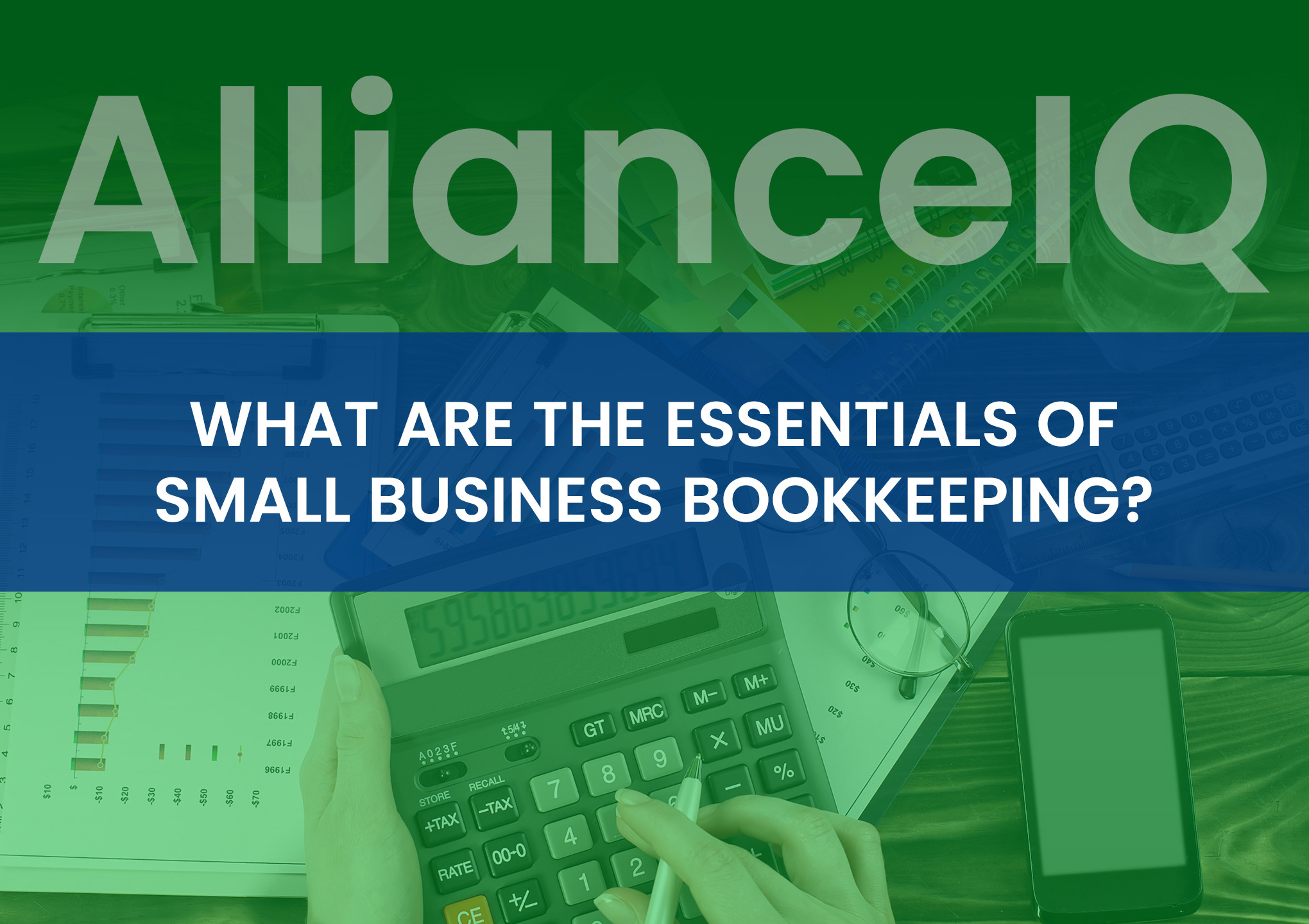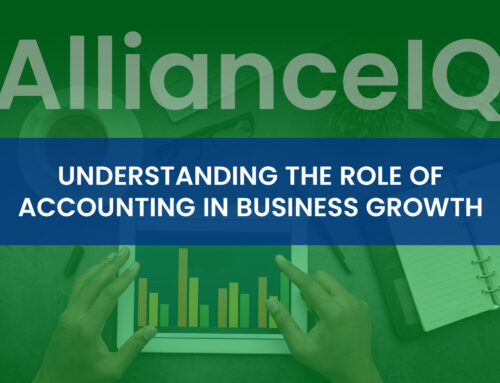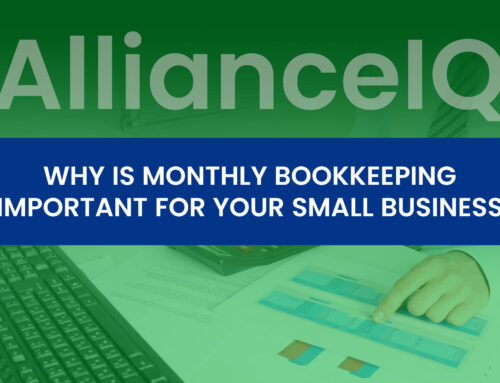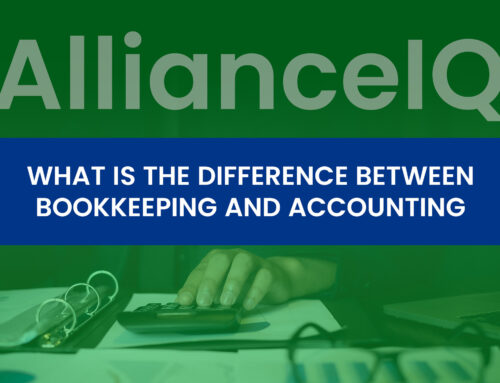Small enterprises are the backbone of economies around the world in the ever-changing landscape of entrepreneurship. Effective bookkeeping is essential for all businesses, whether they are digital startups operating out of a garage, small boutique shops, or cozy cafés. discover What are the essentials of Small Business Bookkeeping With AllianceIQ
Financial success is built on a foundation of small company bookkeeping. It guarantees correct recording of financial transactions, tracking of expenses, and acquisition of knowledge regarding the financial well-being of the company. Let’s explore the fundamentals of bookkeeping for small businesses, appreciate its importance, and identify the critical elements required for success.
Small Business Bookkeeping: The Backbone of Success
Small business bookkeeping is more than just recording transactions; it’s about understanding the financial pulse of your venture. It involves systematically recording, organizing, and analyzing financial data to facilitate informed decision-making. Whether you’re a solopreneur or have a small team, maintaining accurate and up-to-date financial records is imperative for sustainable growth.
Small Business Accounting: Understanding the Basics
At the heart of small business bookkeeping lies small business accounting. While the terms are often used interchangeably, accounting encompasses a broader scope, including interpreting financial data, creating financial statements, and offering insights into the business’s economic health. Bookkeeping, on the other hand, focuses on the day-to-day recording and categorization of financial transactions.
The Essentials of Basic Bookkeeping for Small Business
- Organized Record-Keeping: Establish a system to record all financial transactions promptly. This includes sales, purchases, expenses, and any other financial activities relevant to your business. Utilize accounting software or manual ledgers based on the scale and complexity of your operations.
- Categorization of Transactions: Categorize transactions accurately to gain insights into your business’s financial performance. Common categories include revenue, expenses (such as utilities, rent, and wages), assets, liabilities, and equity. Consistent categorization simplifies tax preparation and financial analysis.
- Bank Reconciliation: Regularly reconcile your bank statements with your financial records to ensure accuracy. Discrepancies may arise due to bank fees, outstanding checks, or unauthorized transactions. Reconciliation helps identify errors and discrepancies, maintaining the integrity of your financial data.
- Tracking Expenses: Monitor and track business expenses meticulously. This includes both fixed expenses (such as rent and utilities) and variable expenses (such as inventory purchases and marketing costs). Tracking expenses allows you to identify areas for cost-saving and budget optimization.
- Invoice Management: Timely issuing and tracking invoices are crucial for maintaining cash flow. Implement an efficient invoicing system to bill clients promptly and follow up on overdue payments. This ensures a steady stream of revenue and minimizes the risk of late payments.
- Financial Reporting: Generate regular financial reports to assess your business’s performance and make informed decisions. Key financial statements include the income statement, balance sheet, and cash flow statement. These reports provide insights into profitability, liquidity, and overall financial health.
- Tax Compliance: Stay compliant with tax regulations by maintaining accurate records and filing taxes on time. Deductible expenses, tax credits, and allowances can significantly impact your tax liability. Consult with a tax professional to maximize deductions and minimize tax obligations.
We at AllianceIQ are aware of how crucial bookkeeping is to the growth and sustainability of small businesses. Our all-inclusive bookkeeping services are tailored to the particular requirements of small businesses, offering individualized ways to improve performance and streamline financial procedures. We enable small businesses to prosper in the current competitive market by leveraging our experience and unwavering dedication to quality. Work together with The AllianceIQ to use efficient bookkeeping techniques to realize your company’s full potential.
Conclusion:
In summary, What Are The Essentials of Small Business Bookkeeping? the long-term profitability and expansion of a small business depend critically on the ability to grasp the fundamentals of bookkeeping. Small businesses can acquire useful insights into their financial performance and make well-informed decisions by putting into practice meticulous financial management methods, accurate transaction categorization, and organized record-keeping. Your bookkeeping skills can be further improved by collaborating with a reliable partner, which will increase productivity and profitability. Take advantage of the advantages of efficient bookkeeping and set out on a path to financial success with AllianceIQ.








